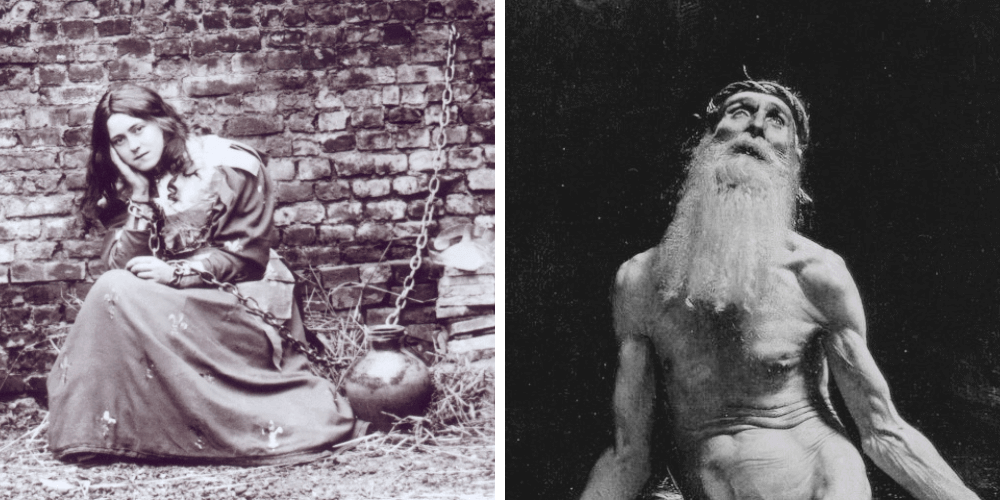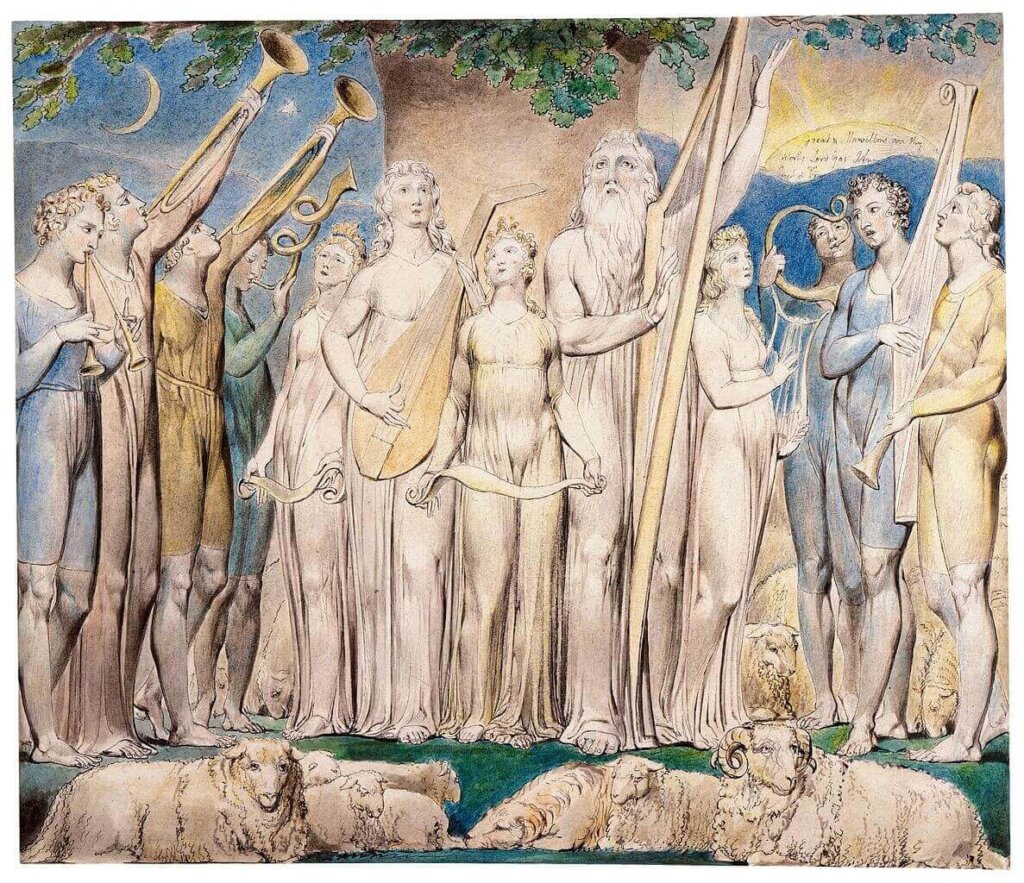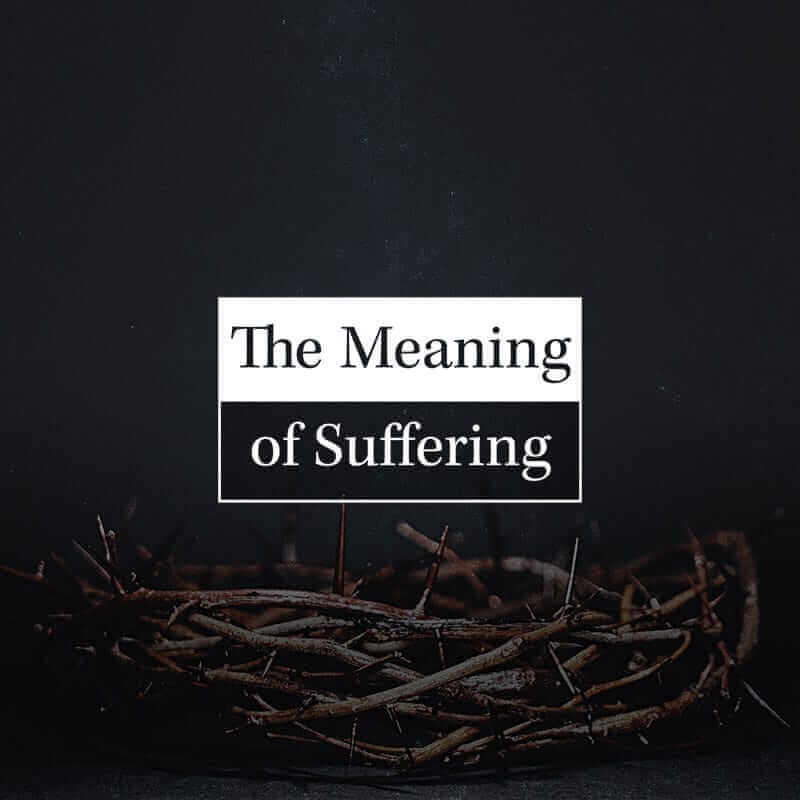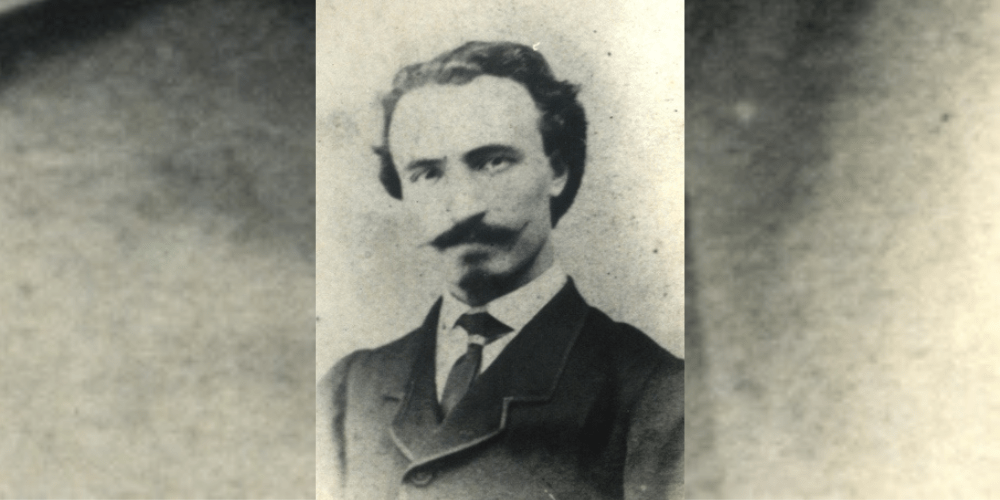
I’ve been pondering two holy souls who, at first glance, seem to have little in common.
St. Thérèse of Lisieux (beloved for her “Little Way”) and Job (from the Old Testament book bearing his name) are, I believe, kindred spirits. They have more in common than we might realize—and much to teach us.
Allow me to share my thoughts on this with you.
Here are five valuable lessons from Job and the Little Flower—based on their lives, with all the sufferings and joys therein—that transcend time and reinforce important truths of our faith.
1. God is in control, no matter how bleak things look.
It’s a confounding paradox, isn’t it?
As Christians, we believe that God’s will is always accomplished. No person, circumstance, or affliction can thwart the will of the Almighty.
If we suffer, and He allows the suffering to continue, it is because of some greater good we have yet to recognize. We may never come to understand it until we join Him in eternity.
Mankind’s ancient stumbling block is our inability to trust the One who created us with the life He created for us. He spoke us into being with such great love and desire, and yet we struggle to trust Him with our love and abandon ourselves entirely to His care.
But we know that God is the source of all wisdom. Since He created us out of love, in perfect wisdom, He can be trusted to order everything for our good.
St. Thérèse always trusted God with childlike abandonment and taught others to do likewise. At the end of her life, she told her sisters in the infirmary,
“The words of Job, ‘Even though he should kill me, yet will I trust him,’ always fascinated me since my childhood days…”
St. Thérèse
2. God reveals Himself to us in our sufferings.
God uses any means He can to enter our hearts. Suffering is a particularly fruitful doorway.
He does not revel in our trials, but He will use them for our good. Through them, He desires to reveal Himself to us, and grow in intimacy with us. Trials can perfect us over time, if we seek what God is trying to accomplish in them.
In a single day, Job lost all ten of his children, his homes, his livestock, and his servants. In his anguish, Job cried out to God, and drew closer to Him in immediate prayer and sacrifice. He knew that His God was sovereign and omnipotent, even when He was silent. God’s grace sustained Job’s faith and perseverance.
As St. Thérèse suffered throughout her life in varying degrees, Jesus taught her to know and love Him, see herself through His eyes, and draw others to Him.
As a result, the Little Way took shape. This way of spiritual childhood encourages us to practice everyday acts and sacrifices with fidelity and love. It was a fruit of God’s revelation and Thérèse’s sufferings.
3. Our sufferings are not always punishment for sin.
God’s designs for His children are mysterious and beyond our understanding, but He is not a cruel and tormenting Father. He does not punish us for our sins by sending cruel sufferings down like lightning bolts from heaven. He is a Father who loves us.
While some sufferings are the inevitable consequences of our own poor choices, some are not. And every suffering, whether innocently born or self-inflicted, has a place in God’s redemptive love for us.
The Scriptures tell us that Job was a blameless and upright man who feared God and turned away from evil (Job 1:8). He did not bring the wrath of God upon himself because of a sinful life. Yet God permitted Satan to inflict suffering upon Job to reveal his faithfulness and its witness to God’s glory.
Like Job, St. Thérèse experienced profound sufferings in her life. When the saint was only four years old, her mother died of cancer. Thérèse herself suffered serious illness in her childhood, and died of tuberculosis in her early twenties.
Her sins did not cause these tribulations, but God used them to form her, and advance His will for her.
4. Doubting is human and normal. It’s how we respond that matters.
We can be tempted to doubt when facing a single circumstance or a difficult season of life. We all get weary sometimes. This is not necessarily a sign of weakness, so much as an aspect of our limited humanity.
When numerous calamities did not cause Job to reject God, Satan compounded his suffering by inflicting him with painful and disgusting boils from head to toe. Job’s agony increased, and God did not show Himself. As Job’s affliction grew, he was tempted to doubt God.
While he scraped his sores and sat in ashes, his own wife ridiculed him cruelly, exhorting him to curse God and die (Job 2:9).
It is his reply that we remember from the Scriptures, not his doubt:
“‘You speak as foolish women do. We accept good things from God. Shall we not accept evil?’ Through all this, Job did not sin in what he said.”
Job 2:10
The Little Flower understood Job’s temptation to despair when she was wasting away with tuberculosis at the end of her life.
In addition to her physical sufferings, she was undergoing a dark night of the soul, in which she found no spiritual consolation and was plunged into the greatest interior darkness. Despite her anguish, Thérèse made acts of faith continually, doing all she could to carry out good works to reinforce her faith.
In those acts she found union with God. By His grace and her strength of will, Thérèse lived her faith in the midst of great darkness. To do this, she channeled a torrent of love into the ordinary tasks of everyday life, even from the monastery infirmary.
5. Aspire to accept sufferings peacefully, and never lose hope.
We all know that this is easier said than done. We are anxious creatures, so fearful of the unknown. We are attached: to people, places, our earthly lives. These attachments are impediments to abandoning ourselves completely to God.
In the midst of Job’s calamity, his response was to rise, tear his garments, shave his head in penance, and fall on the ground, worshiping God. As he did this, he exclaimed,
“Naked I came forth from my mother’s womb, and naked I shall go back again. The Lord gave, and the Lord has taken away. Blessed be the name of the Lord!”
Job 1:20-21
St. Thérèse also abandoned herself in peace and rested in God’s will for her life. She recognized her nothingness and expected everything from God. Just as a tiny child trusts her parents completely, the Little Flower placed all of her hope in her Heavenly Father.
“If you should find me dead one morning,” she said, when her life was ending, “don’t worry. It’s just that the good Papa God will have simply come for me. Yes, it is a great grace to receive the Sacraments, but when God does not permit it, it is fine, just the same. All is grace.”
We should aspire to calmly accept our sufferings and submit to God’s sovereign will in our lives. The source of our greatest sufferings is the inability to give them to Him in holy confidence.
When we do, we affirm Him as all-good, all-wise, and all-powerful. There is nothing that pleases him more than trusting hearts abandoned to His will, especially in tribulations. Into these hearts He can pour the greatest abundance of His grace.
Companion Souls

It’s no wonder Job’s words fascinated the Little Flower. In many ways, these two luminaries of the Faith were companion souls. Separated by more than 2,000 years, yet united by their faith in God and His merciful love, they have many timeless lessons for us today.
Thérèse and spiritual darkness. Job and spiritual abandonment. The ultimate faithfulness of these kindred spirits proclaims the goodness of God and their everlasting joy with Him in heaven. They are together now, Job and Thérèse.
May we join them one day, and sing God’s praises with them forever.
Feature image: photo of St. Therese of Lisieux portraying St. Joan of Arc and Job by Léon Bonnat. US-PD.





![Don’t Have A Spiritual Director? 5 Things You Can Do To Find One [Video]](https://www.goodcatholic.com/wp-content/uploads/2023/02/HTRTB-Lesson-8-Ellenrieder-Cropped.jpg)
